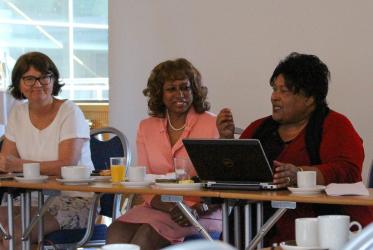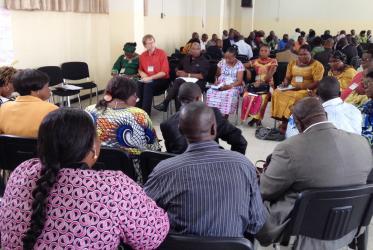Displaying 101 - 120 of 132
New Executive Committee members elected in Trondheim
28 June 2016
Tveit in South Africa: “ We know. We dare. We can.”
12 June 2016
Congolese church leader speaks on DRC electoral process at UN event
17 September 2015
WCC mourns the death of Leopoldo Niilus
10 February 2015
WCC condemns violent demonstrations in Kinshasa
22 January 2015
WCC expresses shock over killings in Nigeria
12 January 2015










